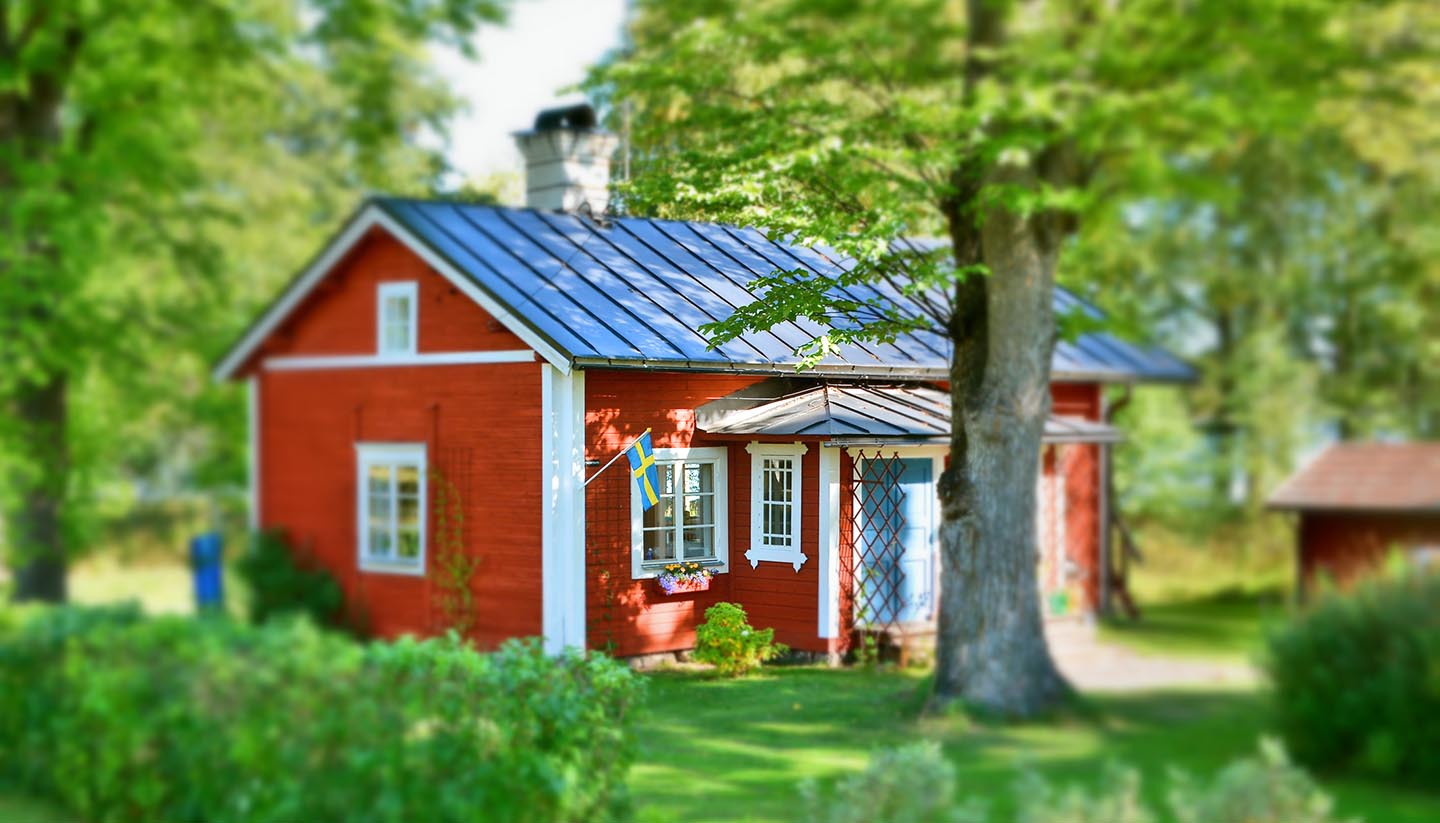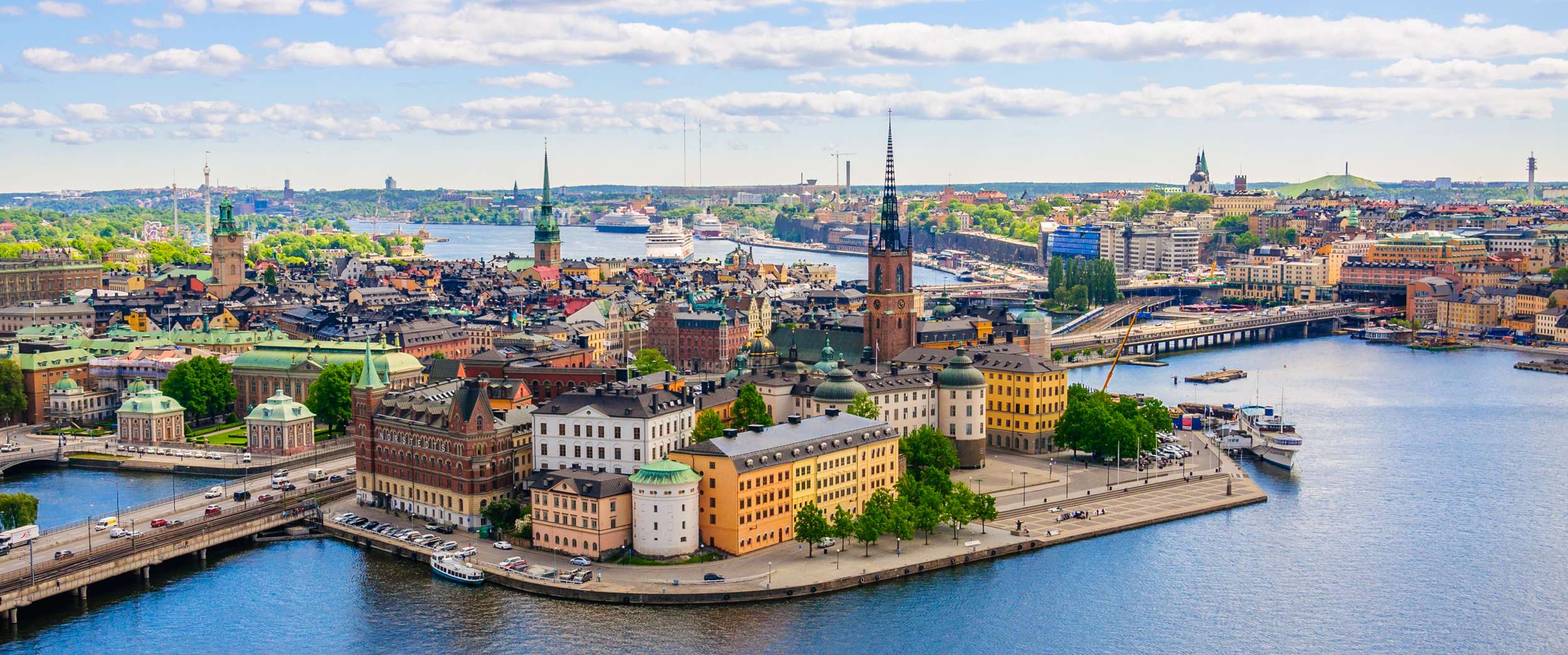Sweden History, Language and Culture
History of Sweden
Described as ‘a land of frozen seas and the midnight sun’ by Greek explorer and trader Phytheas of Massilia in AD550, by the time of the ninth century, Sweden’s icy waters were proving an outlet for explorers of its own. From 800 until the mid-11th century, Sweden's Vikings took eastern Europe and Byzantium by storm; sacking monasteries, carrying off shiploads of plunder and providing some of the most memorably monikered characters to walk the Earth, including Ingvar the Far-Travelled and Eric the Victorious.
Towards the end of this period, the modern kingdom of Sweden came into being and some sense of order followed the accession of Margaret – Regent of Denmark and ruler of Norway – in 1387. She attempted to establish a united Scandinavia, but this did not last long and during the 15th century the nobility was able to do much as it pleased.
The most significant event of this period was the Massacre of Stockholm in 1520, occasioned by Christian of Denmark’s attempt to reassert his authority in Sweden. During the resulting revolt, headed by Gustav Ericksson Vasa, the Danes were defeated and Gustav established the House of Vasa as monarchs. Much of the foreign policy of the 17th century was expansionist and despite his Protestantism, Gustav II allied with Catholic France as Sweden won the last remaining Baltic territories not under its control – Prussia and Pomerania.
The next couple of centuries saw the country lose the majority of its territory outside of Scandinavia as a succession of royal dynasties playing a gilded sort of musical chairs with the throne. By 1818, the Bernadotte family (which still rules) had taken control, but while the country’s political leadership was assured, its overseas territories remained in a state of flux thanks to the emergence of Norwegian nationalism, which culminated in Norway’s declaration of full independence in 1905.
By this time, parliamentary government had emerged in Sweden. The Social Democrats first gained power in the early 1920s and rule almost continuously from 1932 until 1976. Since the end of World War 2, in which Sweden remained neutral (as it had done in World War 1), the country has enjoyed growing economic prosperity with continued investment in, and expansion of, the welfare state.
Did you know?
• The Roman historian Tacitus was the first to write about Sweden in the Germania.
• Sweden has not been at war since it allied with Napoleon against Norway in 1814.
• On 6 June 2016, to mark the 50th anniversary of the day they first met, ABBA’s Benny Andersson and Bjorn Ulvaeus, were joined by fellow members Agnetha Fältskog and Anni-Frid Lyngstad to perform at a private party.
Sweden Culture
Religion in Sweden
Around 65% of the population belong to the Church of Sweden (Evangelical Lutheran), which separated from the state in January 2000. The remainder belong to minority Protestant denominations although the country also has significant numbers of Catholics, Eastern Orthodox Christians and Muslims.
Social Conventions in Sweden
Normal courtesies should be observed. It is customary for the guest to refrain from drinking until the host makes a toast. The guest should also thank the host for the meal by saying tack för maten (thank you for the food). Casual dress is acceptable for everyday occasions; smarter threads are worn for social occasions, exclusive restaurants and clubs. Evening wear (black tie) will usually be specified when required. Smoking is prohibited on public transport and in most public buildings.
Language in Sweden
The main language is Swedish but Sámi (Lapp) is spoken by the Sámi population in the north. There are also Finnish, Meänkieli, Romani and Yiddish-speaking minorities. English is taught as the first foreign language from an early age.
Phrases
- Beer = Öl
- Closed = Stängt
- Danger = Farligt
- Do you speak English? = Talar ni engelska?
- Doctor = Läkare
- Eight = Åtta
- Eighty = Åttio
- Entrance = Ingång
- Exit = Utgång
- Fifty = Femtio
- Five = Fem
- Forty = Förtio
- Four = Fyra
- Friday = Fredag
- Goodbye = Hej då
- Hello = Hej
- Hotel = Hotell
- How are you? = Hur mår ni?
- How much does it cost? = Vad kostar det?
- I'm very well = Bra, tack
- I don't understand = Jag förstår inte
- I feel ill = Jag mår dåligt
- Menu = Meny
- Monday = Måndag
- My name is = Mitt namn är
- Nine = Nio
- Ninety = Nittio
- No = Nej
- One = En / Ett
- One Hundred = Hundra
- One Thousand = Tusen
- Open = Öppet
- Please = Tack
- Restaurant = Restaurang
- Saturday = Lördag
- Seven = Sju
- Seventy = Sjutio
- Six = Sex
- Sixty = Sextio
- Sunday = Söndag
- Ten = Tio
- Thank you = Tack
- Thirty = Trettio
- Three = Tre
- Thursday = Torsdag
- Today = Idag
- Toilets = Toalett
- Tomorrow = Imorgon
- Tuesday = Tisdag
- Twenty = Tjugo
- Two = Två
- Wednesday = Onsdag
- Where is ? = Var ligger ?
- Wine = Vin
- Yes = Ja



